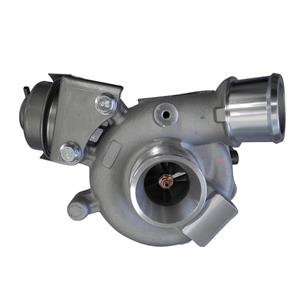Do you have to lower the price if the customer says it's expensive? -Negotiation skills
Do you have to lower the price if the customer says it's expensive? -Negotiation skills
In the mind of the buyer: the supplier's price is "expensive", always make the supplier feel that we have an order, not give them an order because there is a better supplier. Another point is never let the supplier feel that we must give him an order, he must not.
Buyer price pressure is a common thing in foreign trade negotiations, which suppliers should be how to respond calmly?
Q: Do I have to reduce the price if the customer says it is expensive?
A: Not necessarily. When the customer says the price is expensive, we must first clarify several questions.
- Does the customer really have a demand for the order? (I have met purchasers who have said this: from time to time, if I approach a supplier for a quotation, the supplier will think I have more orders and better chances so that I can get a quality price.)
- Will a price reduction get the customer to place an order? (Not really. The customer is never satisfied and always thinks you still have a big margin.)
How do you know if this customer has a clear need for an order? If you ask the customer the following questions, you will probably know the outcome.
- If there are no more objections to the price, shipping and other terms, when will the order be placed?
- How much of a quantity does the customer need?
- What is the approximate delivery time?
- Are there any special requirements?
If the customer can answer these questions directly, then the order is more reliable; if the customer is stumped and cannot answer any of the questions you ask, and only tells you "just give me your best price", then we have to put a question mark on the customer's situation.
Q: Do I need a reason to reduce the price?
A: Of course you need a reason to reduce the price. The most common situation we encounter is when we are shopping for clothes. If you say that the boss of a piece of clothing price of 100 yuan, you ask 50 to sell, at this time the boss said okay, you must feel that they are at a loss, the clothes are not worth so much; if the boss has been and you ink, a little bit of price reduction, and said a variety of reasons, you may end up with a higher price to buy, but feel that they have earned.
So we can't let the customer feel that the previous offer was inflated. We can use a common reason, such as: "I'll apply with the boss" (why emphasise the boss?). If you say and the manager to apply, the first he thinks you are a small salesman, the second manager's price can have how much discount, I might as well find your leader, so the price in one step to save a lot of time.) You can also say, "I'll get the company's financial accounting" and so on.
In short, you have to make the customer feel that your price is the lowest price you have worked hard to get for him.
Q: What is the right way to reduce the price?
A: I have encountered this situation before. I said the price was too high, the supplier lowered it by 10 points, I still felt it was high, and the supplier lowered it by another 10 points. At this point, not to mention the fact that I had great doubts about the sincerity of his initial offer, I was already holding great wait-and-see interest in just how many more 10 points he could drop next.
My advice on the extent of the price reduction is as follows.
First: that the price reductions should not be too large.
Second: take a step-down in price, the more you drop the less you get, so that customers feel that you really don't have much profit.
Foreign trade negotiation skills: can't ask for what the customer wants
Do not unconditionally agree to the customer's request. For example, if a customer asks for a price cut, many salesmen feel that the profit margin is still large anyway, it does not hurt to drop a drop, not knowing that you are easily a drop, may be replaced by the customer endless pestering.
It is not impossible to reduce the price, you need to exchange with the customer conditionally, we reduce the price, the other party must also pay a price. For example, the original agreement is all spot L/C, now request a price reduction in the case of 30% TT, 70% spot L/C (of course, this is only an example, according to your understanding of the customer, the proposed conditions must not make the customer too offensive, or may make the customer beat a retreat, this is a degree of grasp.)
To make the client feel that you are in a difficult position. For example, "I'm just a business person, I don't have such great authority, can you tell me the detailed purchase plan, such as delivery date and quantity, and I'll apply to the management to see if there is any hope."
Also, customers sometimes ask to adjust their payment method, and if you can accept the change, don't agree to it unconditionally, for example by changing from a TT to a spot L/C. You say: I'm afraid this will require a price increase because the cost is different. Or to change the delivery date, because the factory in accordance with the payment to or the original letter of credit to the order, anyway, is to pick the customer his most sensitive place to poke.
In fact, this one many foreign trade personnel are unable to do, most foreign trade personnel concept is: we are for customer service, customer requirements should be fully to do, and then difficult to do not! But the customer can not be spoiled, all requirements are to be exchanged with the conditions, absolutely not for no reason for them to deal with some additional things. This is called an exchange of equal value, and even if it is not equal, you cannot accept additional conditions for no reason, otherwise you will gradually fall into passivity




